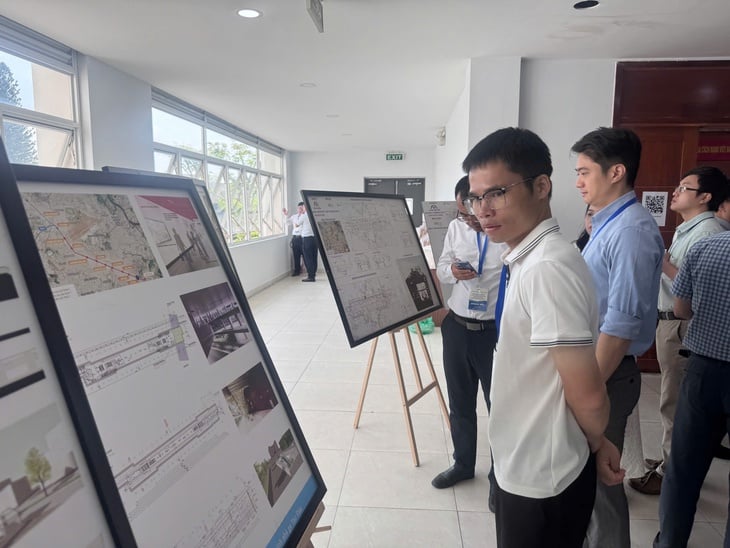
The workshop gathered many experts - Photo: THU DUNG
At the workshop, many experts discussed the scale, plan, and progress of the EPC package, which is the most important item of the project. At the same time, they evaluated the capacity and experience of domestic and international contractors interested in the project.
Consulting to deploy metro line 2 appropriately
Opening the conference, Mr. Phan Cong Bang - Head of the Ho Chi Minh City Urban Railway Management Board (MAUR) - said that from April 2025, the board and the Hanoi Urban Railway Management Board successfully organized an international conference to share experiences in consulting and implementing metro projects.
Along with the special mechanism under Resolution 188, MAUR signed contracts and mobilized consultants to prepare important project documents such as pre-feasibility study reports, FEED designs and EPC package bidding documents.
According to Mr. Bang, this time the unit continues to organize a conference to publicize and make transparent the overall contractor selection plan. Through this, it also consults on technology, techniques, and response capacity of domestic and international contractors for the main bidding packages of the project.
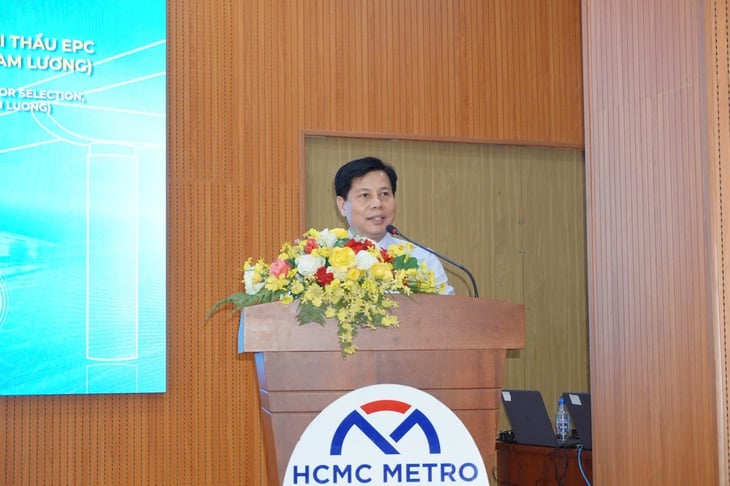
Mr. Phan Cong Bang - Head of Ho Chi Minh City Urban Railway Management Board - Photo: HS
"Through the conference, investors and consultants collected feedback and evaluated the actual market, thereby building appropriate requirements, criteria and implementation plans for metro line 2. In addition, the units also surveyed the actual project, exchanged and provided information on the strategy of dividing the bid packages, scope of work, applied technology and implementation plan for FEED design.
We will listen to comments, experiences and suggestions from potential contractors to ensure the project is implemented on schedule, with the highest quality and efficiency," said Mr. Bang.
Mr. Bang added that developing urban railways is not only about building a modern means of transport, but also about realizing the aspiration of a civilized and convenient urban area of Ho Chi Minh City residents.
"Although the upcoming journey is full of challenges, I believe that with the consensus of the people, the determination of the government and the support of contractors and investors, the city's metro system will soon be synchronized and reach the same level as many large cities," he emphasized.
Many international standards are being formulated for the metro system.
MAUR considers the EPC package of metro line 2 to be the most important item, determining the progress and technical standards of the entire line.
There are 6 main content groups such as technical standards. The applied standards system is built on the foundation of European standards (EN), combining Vietnamese standards (TCVN) and supplementing Chinese and Japanese standards in areas that have not been regulated.
All design principles aim for efficiency - safety - energy saving - environmental friendliness - passenger comfort.
According to this standard, the track gauge is 1,435mm; traction voltage is 1,500V DC (overhead contact network); minimum curve radius is 300m; maximum gradient is 35%; design speed is 90km/h (underground), 120km/h (overhead) and CBTC signal system, automatic level GOA4.
As for civil works, it is the entire construction of 11 stations (10 underground, 1 elevated), TBM tunnel and overpass, and Tham Luong depot. The station uses reinforced concrete diaphragm walls 1.2 - 1.5m thick, beam - floor - column frame structure, constructed by top-down or cut-and-cover method.
The tunnel sections are about 9.3km long, constructed using earth pressure balance (EPB) shields, which can control subsidence and reduce impact on neighboring structures.
Tan Binh elevated station (ST11) has a 3-storey structure (lobby, platform, technical), located on the median strip of Truong Chinh street. Tham Luong Depot is 22.5 hectares wide, playing the role of a maintenance center, providing electricity, operating and storing locomotives and wagons.
In addition, special technical measures are applied such as two-layer waterproofing system, foundation reinforcement with Jet Grouting, enhanced monitoring of subsidence of neighboring works, ensuring absolute safety in densely populated urban areas.
Regarding the track structure, the underground section uses rock-free concrete rails, welded seamlessly to reduce vibration; the viaduct uses U-beams assembled from composite steel and concrete structures. The entire section meets EN 13232 (European) standards, with an axle load of 16 tons.
MAUR added: "The EPC contractor is responsible for training the operating team, transferring control technology, preparing completion documents and providing a 2-year warranty after handover for the training - technology transfer - warranty category of the line.
The goal is to form an autonomous metro operating force and standardize the EPC model for future metro lines in Ho Chi Minh City.
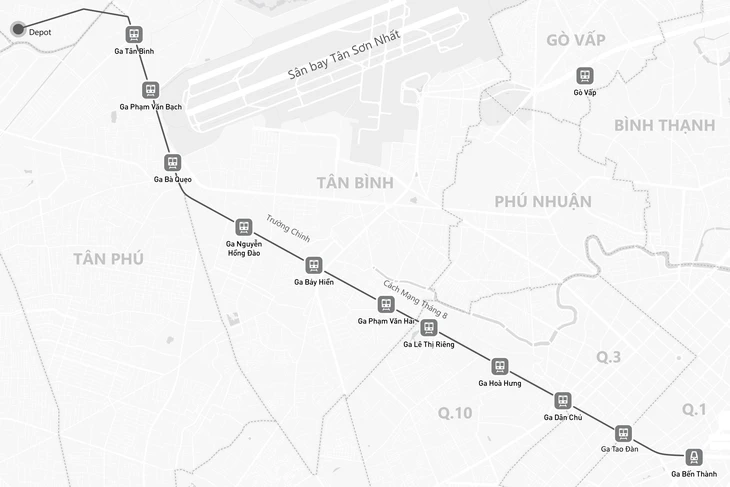
Metro line 2 route - Graphics: PHUONG NHI
The opinions and discussions at the conference will be compiled as a basis for MAUR to complete the bidding documents, moving towards selecting an official EPC contractor in the coming time.
Metro Line 2 project (Ben Thanh - Tham Luong) was approved in 2010 with the initial plan to operate in 2026. Later, the Ho Chi Minh City People's Committee adjusted the completion time to 2030.
The total length of the line is more than 11km, of which 9km is underground, nearly 2km is elevated and the transition section, the road leading to the depot. The line has 10 stations (9 underground stations, 1 elevated station) and 1 Tham Luong depot, passing through 6 districts before the merger including districts 1, 3, 10, 12, Tan Binh and Tan Phu. Along the line, the station areas are gathering materials and urgently constructing.
This is also the first urban railway line to pilot the application of policy mechanisms from Resolution 188/2025/QH15.
Source: https://tuoitre.vn/tp-hcm-tham-van-nha-thau-quoc-te-de-trien-khai-metro-so-2-chat-luong-dung-tien-do-20251018154358051.htm




![[Photo] National Assembly Chairman Tran Thanh Man attends the VinFuture 2025 Award Ceremony](/_next/image?url=https%3A%2F%2Fvphoto.vietnam.vn%2Fthumb%2F1200x675%2Fvietnam%2Fresource%2FIMAGE%2F2025%2F12%2F05%2F1764951162416_2628509768338816493-6995-jpg.webp&w=3840&q=75)
![[Photo] 60th Anniversary of the Founding of the Vietnam Association of Photographic Artists](/_next/image?url=https%3A%2F%2Fvphoto.vietnam.vn%2Fthumb%2F1200x675%2Fvietnam%2Fresource%2FIMAGE%2F2025%2F12%2F05%2F1764935864512_a1-bnd-0841-9740-jpg.webp&w=3840&q=75)


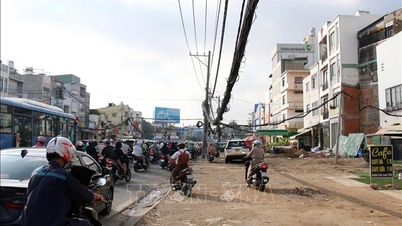

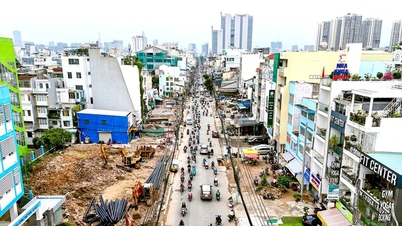
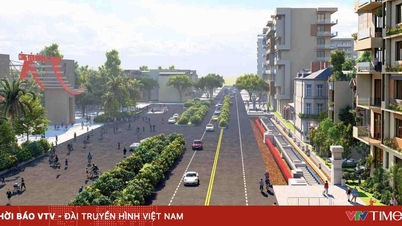

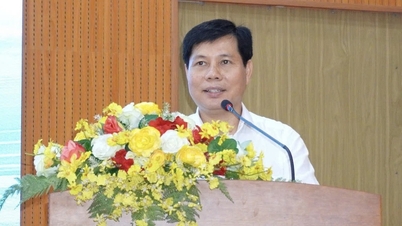
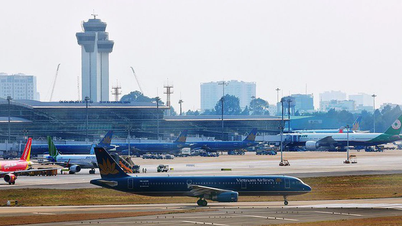
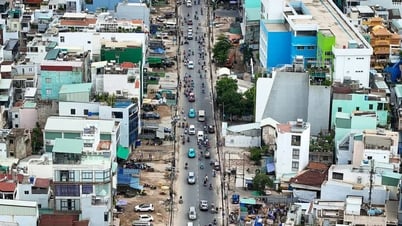
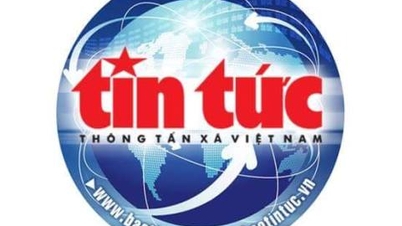
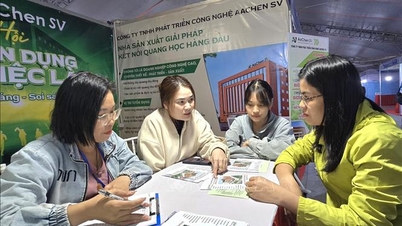

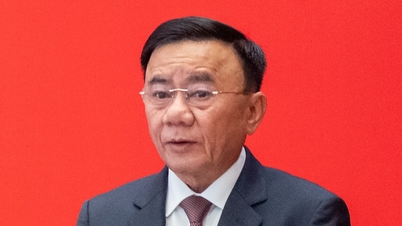
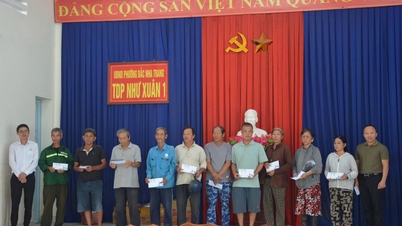
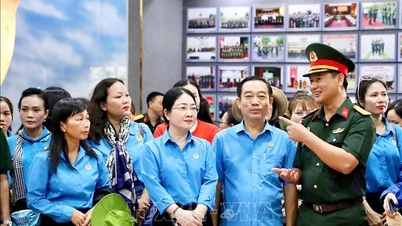





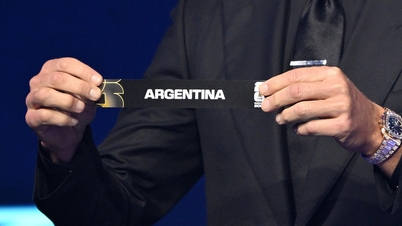
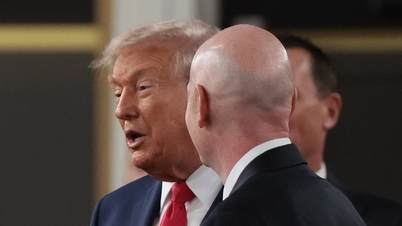
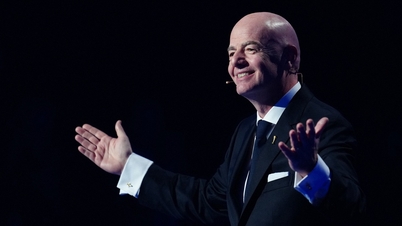










































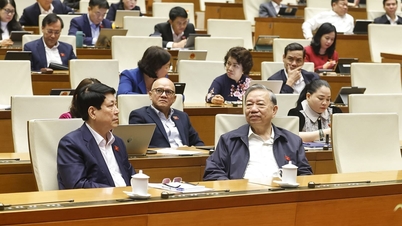








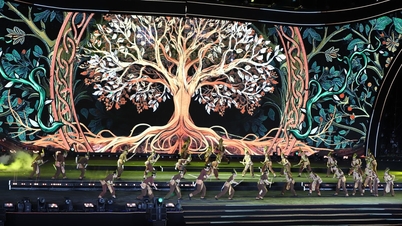

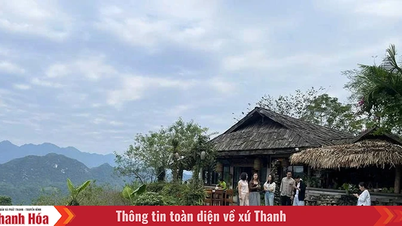

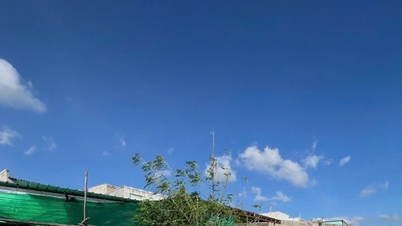
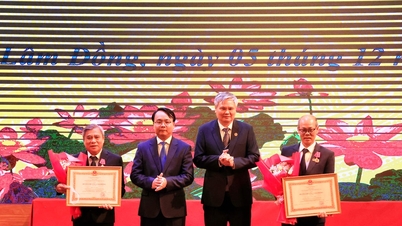
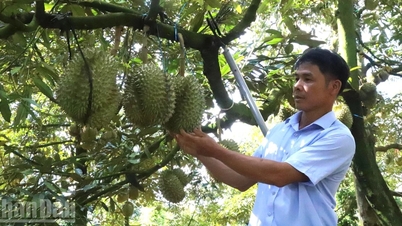
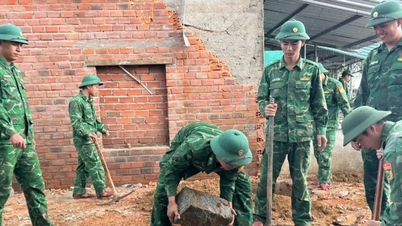









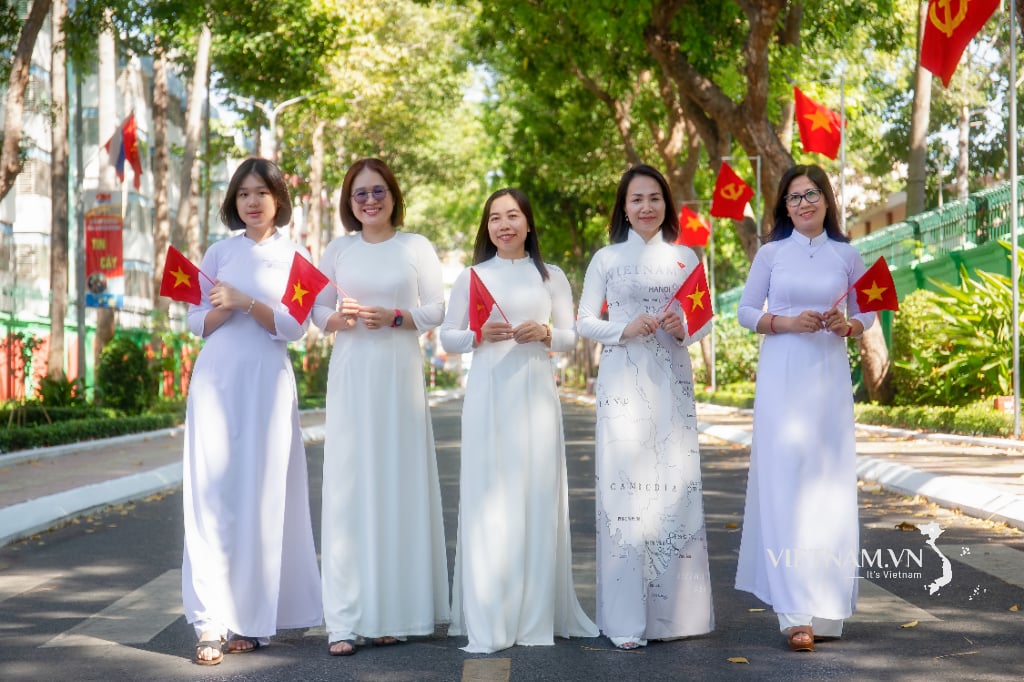







Comment (0)